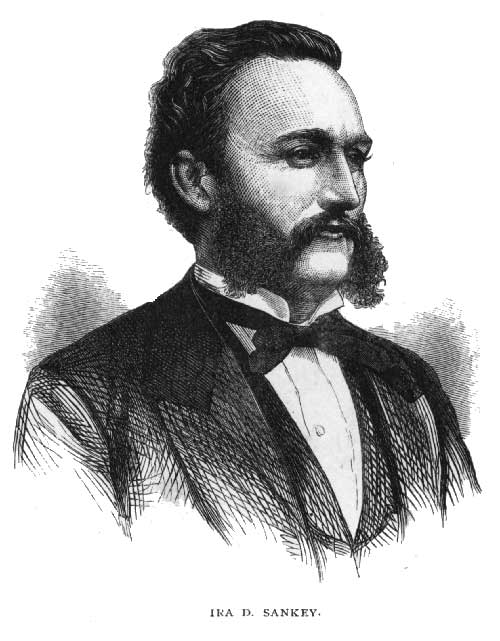June 1872 – New Court Congregational Church, London: Dwight L. Moody was the guest preacher at the church on a Sunday morning. Afterward, a young woman hurried home and told her bedridden sister, “Mr. Moody from America preached at our church this morning.” Marianne Adlard shouted, “I know what that means. God has heard my prayers!”
A less than enthusiastic response from the congregation that morning caused Moody to wonder why he even bothered to preach. He was on a sabbatical, after all. But that Sunday night, what began when he preached in that little church became the greatest revival in Great Britain since John Wesley preached 130 years earlier.
Because of her condition, Marianne never attended church, but she was deeply burdened for friends and family and prayed daily for a revival. She didn’t just pray for revival – she prayed that Dwight L. Moody would come from Chicago to preach a revival at her church.
When Moody visited England five years earlier, Marianne read about his visit. She couldn’t get him off her mind. She had clipped the newspaper article and kept it under her pillow. The thought to ask God to send Mr. Moody to New Court Congregational Church pressed on her.
Dwight Lyman Moody was born in Northfield, Massachusetts, in 1837. At 17 he began work in his uncle’s shoe store in Boston and a year later he moved to Chicago with a dream to make his fortune selling shoes. At age 21, Moody started a Sunday class for young men. Encouraged by the class’s rapid growth, and against the strong advice of close friends, in February of 1864, Moody founded the Illinois Street Church and became the first pastor. Illinois Street Church would later become the great Moody Bible Church and the Moody Bible Institute.
On Sunday, October 8, 1871, as Moody concluded his sermon, the fire bells began to ring. The church was destroyed in the Great Chicago Fire. Moody had believed that God wanted him to start a church, but now he wasn’t sure. Maybe his friends had been right.
In 1872, needing guidance and direction, Moody left his wife Emma and two children in Chicago and traveled to England for a spiritual sabbatical. He would not preach but rather listen to some of England’s greatest preachers – men like Charles Spurgeon and George Mueller. Moody’s close friends urged him to give up his absurd idea, but after much prayer, Moody arrived in London in June 1872.
Shortly after arriving, Moody discretely slipped into a mid-week prayer service in the Central Criminal Court Building. Having recognized Moody from his previous visit to London, Pastor John Lessey begged him to preach at his North Court Congregational Church the following Sunday. Moody was reluctant, he had not come to England to preach, but he finally agreed.
When Moody preached that Sunday evening at North Court “the very atmosphere was charged with the Spirit of God.” When he gave the altar call, almost everyone in the church stood up. Thinking they had misunderstood, Moody had everyone sit back down. After explaining the altar call a second time, nearly 400 people came forward.
Word spread about the Sunday night service at North Court and hundreds more came to the church the following week. Moody preached there for two weeks before being invited to Chelsea Chapel. His preaching had similar results. Moody preached across England before returning to Chicago in September.
In 1873, Moody returned to England with his family. For two years, he led revivals in England, Scotland, Ireland and Wales. At times crowds of 15,000 people flooded the great halls to hear him preach.
Dwight L. Moody is estimated to have preached to 100 million people before his death in 1899. The former shoe salesman is one of the greatest evangelists of the 19th Century. And it began with a fire-ravaged church in Chicago and the faithful prayers of Marianne Adlard.
“I never prayed sincerely and earnestly for anything but it came at sometime; no matter at how distant a day, somehow, in some shape, probably the least I would have devised, it came.” Adoniram Judson

I have heard about Rev. Moody many times. but I think this goes into more detail about his life, evangelism, & what that means to us today.